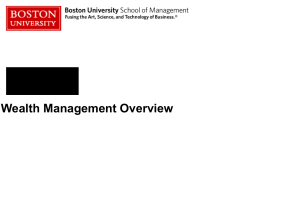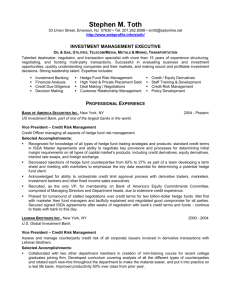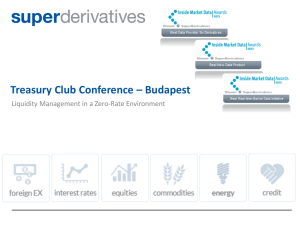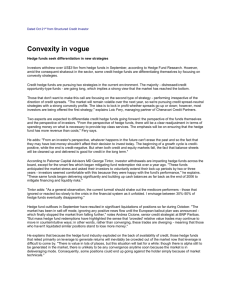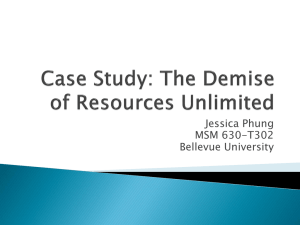MBA570X: Hedge Fund Management and Investment Banking
advertisement
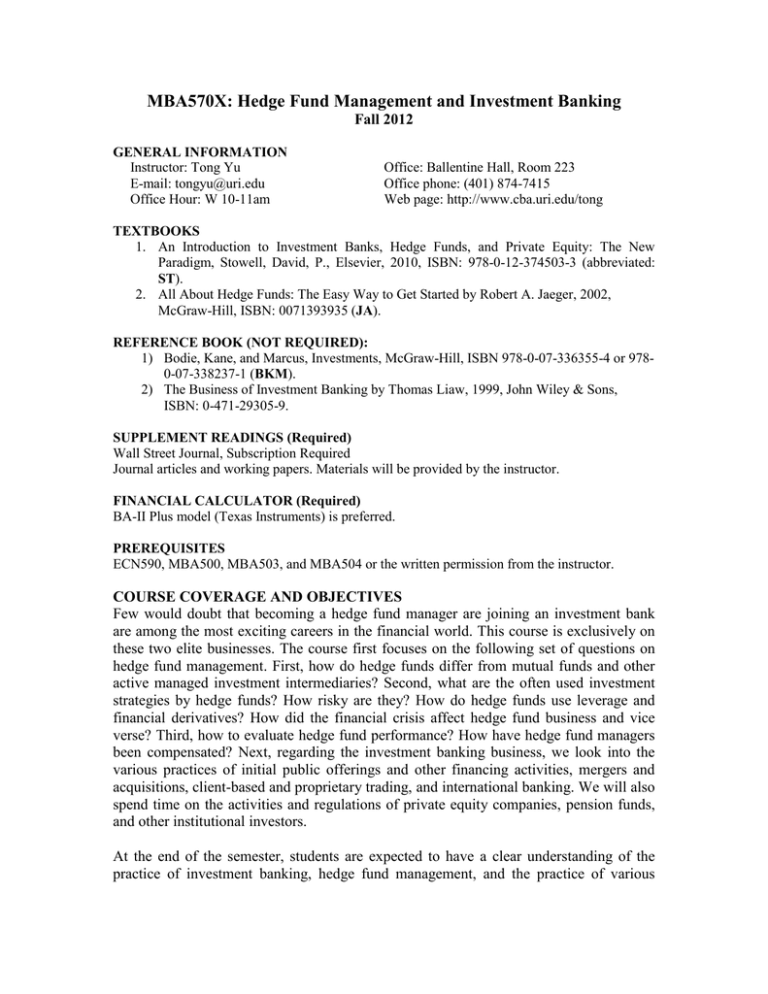
MBA570X: Hedge Fund Management and Investment Banking Fall 2012 GENERAL INFORMATION Instructor: Tong Yu E-mail: tongyu@uri.edu Office Hour: W 10-11am Office: Ballentine Hall, Room 223 Office phone: (401) 874-7415 Web page: http://www.cba.uri.edu/tong TEXTBOOKS 1. An Introduction to Investment Banks, Hedge Funds, and Private Equity: The New Paradigm, Stowell, David, P., Elsevier, 2010, ISBN: 978-0-12-374503-3 (abbreviated: ST). 2. All About Hedge Funds: The Easy Way to Get Started by Robert A. Jaeger, 2002, McGraw-Hill, ISBN: 0071393935 (JA). REFERENCE BOOK (NOT REQUIRED): 1) Bodie, Kane, and Marcus, Investments, McGraw-Hill, ISBN 978-0-07-336355-4 or 9780-07-338237-1 (BKM). 2) The Business of Investment Banking by Thomas Liaw, 1999, John Wiley & Sons, ISBN: 0-471-29305-9. SUPPLEMENT READINGS (Required) Wall Street Journal, Subscription Required Journal articles and working papers. Materials will be provided by the instructor. FINANCIAL CALCULATOR (Required) BA-II Plus model (Texas Instruments) is preferred. PREREQUISITES ECN590, MBA500, MBA503, and MBA504 or the written permission from the instructor. COURSE COVERAGE AND OBJECTIVES Few would doubt that becoming a hedge fund manager are joining an investment bank are among the most exciting careers in the financial world. This course is exclusively on these two elite businesses. The course first focuses on the following set of questions on hedge fund management. First, how do hedge funds differ from mutual funds and other active managed investment intermediaries? Second, what are the often used investment strategies by hedge funds? How risky are they? How do hedge funds use leverage and financial derivatives? How did the financial crisis affect hedge fund business and vice verse? Third, how to evaluate hedge fund performance? How have hedge fund managers been compensated? Next, regarding the investment banking business, we look into the various practices of initial public offerings and other financing activities, mergers and acquisitions, client-based and proprietary trading, and international banking. We will also spend time on the activities and regulations of private equity companies, pension funds, and other institutional investors. At the end of the semester, students are expected to have a clear understanding of the practice of investment banking, hedge fund management, and the practice of various other institutional investors. Students are expected to be competent to address questions regarding these and related fields in the financial market. HOMEWORK Homework assignments include the end-of-chapter questions and group exercises including writing summaries for journal articles assigned by the instructor. Solutions for the end-of-chapter problems will be posted after the due day. LATE WORKS WILL BE PUNISHED. GROUP PROJECT/CASE STUDY/SUMMARY You will work on projects in a team setting. Each group consists of no more than 5 people. You are asked to submit reports for three cases listed in the course calendar. “Kmart, Sears, and ESL: How a Hedge Fund Became One of the World’s Largest Retailers” “A Tale of Two Hedge Funds: Magnetar and Peloton” “The Best Deal Gillette Could Get? Proter and Gambler’s Acquisition of Giliette”. Requirements of case reports include: i) a case summary, ii) answers to the questions provided in the cases and those that I have assigned when we go through each of the individual cases. Case reports should be between 8 and 10 pages long in the double spaced format excluding tables, figures, and technical appendices. EXAMS There will be 2 exams. A legitimate conflict with any of the examinations can only be determined by the instructor. Failure to obtain this approval PRIOR TO THE EXAM will result in a ZERO grade. To attend a make-up exam within one week of the original date of the exam: 1) contact the instructor prior to the original exam date, and 2) have a legitimate conflict is approved by the instructor. GRADING Participation and Homework Case Reports/Presentation Exam 1 Exam 2 GRADING SCALE 100 - 94 A 83 - 80 B67 - 69 D+ 93 - 90 A79 - 77 C+ 60 - 66 D 10% 30% 30% 30% 89 - 87 B+ 76 - 74 C 0 - 59 F 86 - 84 B 73 - 70 C- POLICIES Class Preparation: Students are expected to prepare for class by reading and thinking about the assigned materials prior to attending class. Students are expected to be in a position to both respond to questions on the material and ask questions regarding the assigned subjects. Attendance: Students are expected to attend all classes. Should a student miss a class, he/she will be responsible for all the work given in the missed session. Students missing six (6) hours of classes will have their grade lowered by one letter grade; students missing twelve (12) hours of classes will receive an F for the course. Late for Class: Students are expected to come to the classes on time. If you are more than 10 minutes late, please do NOT enter the room. It disrupts the class and is very inconsiderate to the instructor and other students in the class. Class Participation: Students are encouraged to actively participate in the class; however the discussion should be conducted in an orderly way. Students should exercise common courtesy and pay close attention when their fellow classmates are speaking. Late Work Policy: Late assignment will NOT be accepted and will receive zero point. Miscellaneous: 1) Please turn-off all electronic devices, such as pager and cellular phone, which might interrupt the class. 2) Please do NOT consume food in the classroom. Academic Honesty: Any student found copying during exams or quizzes, signing someone else's name to the attendance list, using stored formulas in programmable calculators, using non-authorized formula sheets or other notes during exams, collaborating on and/or copying the course project (including from students in prior classes), or the like will receive an F for the course and possibly be subject to additional University disciplinary action. Appeals: Students may appeal grading of an exam or other assignment by providing a written (neatly typed and professionally presented) appeal that describes the nature of the disagreement. All appeals must be turned in by the end of the first class period after the return of the assignment. Date Subjects 9/5 Asset Management and Active portfolio management Chapters 24 & 27 (BKM); Chapter 6 (ST) 9/12 Overview of Hedge Fund Business Chapter 11 (ST), Chapters 1-4 (JA) 9/19 Hedge Fund Investment Strategies (I) Chapter 12 (ST), Chapters 15-18 (JA) 9/26 Hedge Fund Investment Strategies (II) Chapters 13&14 (ST); Chapter 1214 (JA) 10/3 Case: “Kmart, Sears, and ESL: How a Hedge Fund Became One of the World’s Largest Retailers?” Case 6 (ST) 10/10 Organizations and Regulation Hedge Funds Chapter 15 (ST) 10/17 Performance Evaluation and Compensation of Hedge Funds Chapter 15 (ST) 10/24 Case: A Tale of Two Hedge Funds: Magnetar and Peloton Case 5 (ST) 10/31 Exam 1 11/7 Investment Banking; Initial Public Offerings and Other Financing Actives Chapter 1-3 (ST) 11/14 Mergers and Acquisitions Chapter 4 (ST) 11/21 Case “The Best Deal Gillette Could Get?” Case 4 (ST) 11/28 Client Related Trading/Activities of Institutional Investors Chapter 5 (ST) 12/5 Private Equity Chapters 16&19 (ST) TBA Final Exam

